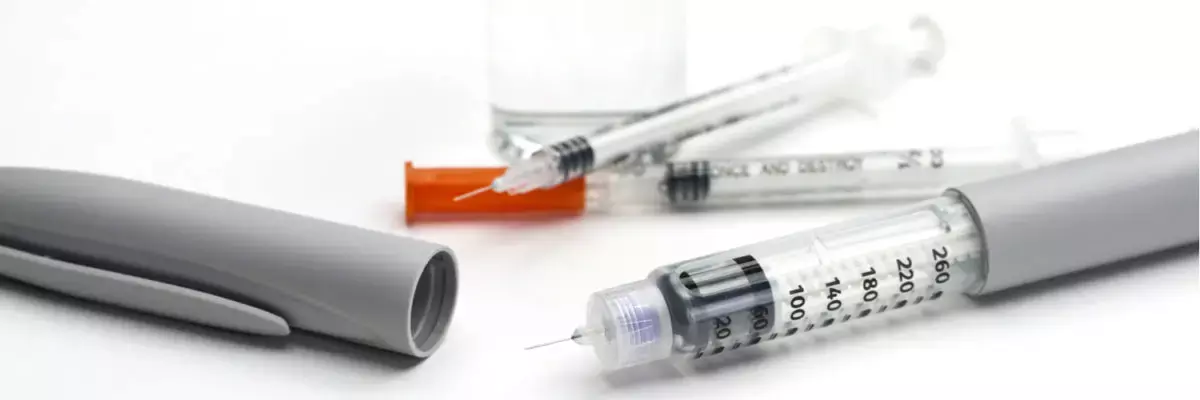- Home
- Medical news & Guidelines
- Anesthesiology
- Cardiology and CTVS
- Critical Care
- Dentistry
- Dermatology
- Diabetes and Endocrinology
- ENT
- Gastroenterology
- Medicine
- Nephrology
- Neurology
- Obstretics-Gynaecology
- Oncology
- Ophthalmology
- Orthopaedics
- Pediatrics-Neonatology
- Psychiatry
- Pulmonology
- Radiology
- Surgery
- Urology
- Laboratory Medicine
- Diet
- Nursing
- Paramedical
- Physiotherapy
- Health news
- Fact Check
- Bone Health Fact Check
- Brain Health Fact Check
- Cancer Related Fact Check
- Child Care Fact Check
- Dental and oral health fact check
- Diabetes and metabolic health fact check
- Diet and Nutrition Fact Check
- Eye and ENT Care Fact Check
- Fitness fact check
- Gut health fact check
- Heart health fact check
- Kidney health fact check
- Medical education fact check
- Men's health fact check
- Respiratory fact check
- Skin and hair care fact check
- Vaccine and Immunization fact check
- Women's health fact check
- AYUSH
- State News
- Andaman and Nicobar Islands
- Andhra Pradesh
- Arunachal Pradesh
- Assam
- Bihar
- Chandigarh
- Chattisgarh
- Dadra and Nagar Haveli
- Daman and Diu
- Delhi
- Goa
- Gujarat
- Haryana
- Himachal Pradesh
- Jammu & Kashmir
- Jharkhand
- Karnataka
- Kerala
- Ladakh
- Lakshadweep
- Madhya Pradesh
- Maharashtra
- Manipur
- Meghalaya
- Mizoram
- Nagaland
- Odisha
- Puducherry
- Punjab
- Rajasthan
- Sikkim
- Tamil Nadu
- Telangana
- Tripura
- Uttar Pradesh
- Uttrakhand
- West Bengal
- Medical Education
- Industry
Insulin can be Stored outside Refrigerator without losing efficacy: Study

Diabetes can be effectively controlled by available treatments. However, only half of the people requiring insulin have access to it, due to complex treatment protocols, high price and challenging storage requirements. A research team from UNIGE and MSF has shown that a vial of insulin can be stored for 4 weeks after opening and at up to 37°C, without losing efficacy. The research has been published in the journal PLOS ONE on February 03, 2021.
Patient with type 1 diabetes and some with type 2 diabetes require to inject themselves with several doses of insulin every day, which are suited to their diet and physical activity. The current pharmaceutical protocol recommends storing insulin vials between 2℃ and 8℃. However, in some regions of the planet like sub-Saharan Africa, not every household has a refrigerator. This forces people living with diabetes to go to the hospital, on a daily basis. Therefore, researchers of Médecins Sans Frontières (MSF) teamed up with the University of Geneva (UNIGE), Switzerland, to test the insulin storage in real conditions, that is at temperatures ranging from 25°C to 37°C for four weeks.
Researchers conducted the study in Dagahaley refugee camp, northern Kenya. They measured ambient temperature oscillated between 25℃ and 37℃ with a 12-hour cycle, exceeding usual recommendations for insulin use out of refrigeration. The UNIGE team used high-performance liquid chromatography to analyse the insulin. They assessed insulin heat stability under these specific temperatures, which were precisely reproduced, in the laboratory.
"As insulin vials can be used for four weeks after opening, we carried out our measurements over the same timeframe, first with vials kept at the temperatures found in Dagahaley, and then with 'control' vials that were refrigerated," explained Leonardo Scapozza, a professor of the School of Pharmaceutical Sciences in UNIGE's Faculty of Sciences in a press release.
Key findings of the study were:
• Upon analysis, researchers found that all the insulin preparations stored at fluctuating temperatures, as encountered in the field, recorded a potency loss of no more than 1%, just like those kept in cold storage during the required four weeks.
• They also observed that insulin activity was completely maintained. To verify this, they tested the action of insulin proteins on cells, compared with that of insulin, which had been intentionally deactivated.
• Upon monitoring the 3D-structure of the tested insulin by circular dichroism, they confirmed that insulin monomer conformation did not undergo significant modifications.
The authors concluded, "These results indicate that insulin can be stored at such oscillating ambient temperatures for the usual four–week period of use. This enables the barrier of cold storage during use to be removed, thereby opening up the perspective for easier management of diabetes in humanitarian contexts and resource-poor settings".
For further information:
https://journals.plos.org/plosone/article?id=10.1371/journal.pone.0245372
Medical Dialogues Bureau consists of a team of passionate medical/scientific writers, led by doctors and healthcare researchers. Our team efforts to bring you updated and timely news about the important happenings of the medical and healthcare sector. Our editorial team can be reached at editorial@medicaldialogues.in.
Dr Kamal Kant Kohli-MBBS, DTCD- a chest specialist with more than 30 years of practice and a flair for writing clinical articles, Dr Kamal Kant Kohli joined Medical Dialogues as a Chief Editor of Medical News. Besides writing articles, as an editor, he proofreads and verifies all the medical content published on Medical Dialogues including those coming from journals, studies,medical conferences,guidelines etc. Email: drkohli@medicaldialogues.in. Contact no. 011-43720751


